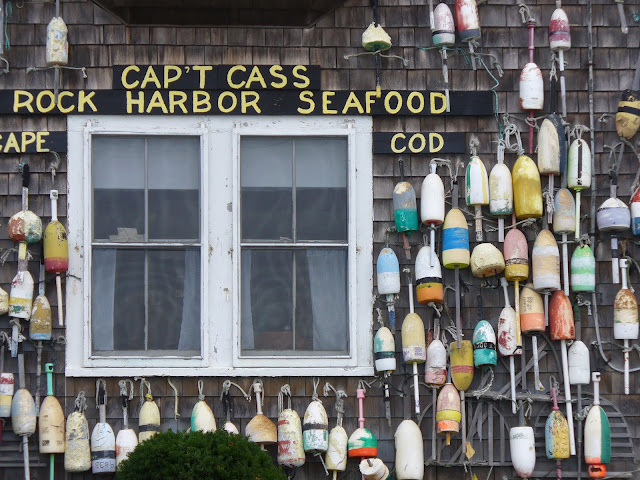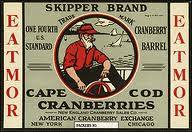Each day, I get a letter from the estimable and friendly Garrison Keillor, the delightful host of National Public Radio's "Prairie Home Companion." You know, the fictional town in Minnesota where "all the women are strong, all the men are good-looking, and all the children are above average."
Mr. Keillor writes a blog called The Writer's Almanac, with poetry and short bios on people of letters. It's very accessible and down to earth -- no fancy/schmancy high falutin' literary snobbery at all -- just the sheer enjoyment of the glory of words (and, truly, would we expect anything less from the man who plays Guy Noir?).
So, while I'm sure that MY letter is also received by a number of others, it's amazing how often Garrison seems to hit on something that strikes close to how I've been feeling, so I like to think he's writing to me. And, since I've been thinking of cranberries all week, this poem seems especially appropriate today. Here on Cape Cod, I pass a dozen or so bogs each day just on my way to work. I think most of them have been harvested by now -- I'll try to include a pic of the beautiful wet bog harvests sometime soon -- but, in lieu of that, here is the most gloriously beautiful recipe you'll ever see or hear. (If you don't go to The Writer's Almanac to hear it, make sure you read it out loud...)
Cranberry-Orange Relish
A pound of ripe cranberries, for two days
macerate in a dark rum, then do not
treat them gently, but bruise,
mash, pulp, squash
with a wooden pestle
to an abundance of juices, in fact
until the juices seem on the verge
of overswelling the bowl, then drop in
two fistsful, maybe three, of fine-
chopped orange with rind, two golden
blobs of it, and crush
it in, and then add sugar, no thin
sprinkling, but a cupful dumped
and awakened with a wooden spoon
to a thick suffusion, drench of sourness, bite of color,
then for two days let conjoin
the lonely taste of cranberry,
the joyous orange, the rum, in some
warm corner of the kitchen, until
the bowl faintly becomes
audible, a scarce wash of sound, a tiny
bubbling, and then
in a glass bowl set it out
and let it be eaten last, to offset
gravied breast and thigh
of the heavy fowl, liverish
stuffing, the effete
potato, lethargy of pumpkins
gone leaden in their crusts, let it be eaten
so that our hearts may be together overrun
with comparable sweetnesses,
tart gratitudes, until finally,
dawdling and groaning, we bear them
to the various hungerings
of our beds, lightened
of their desolations.
You can see other selections from The Writer's Almanac, and hear the poem read here.






















Neato!
ReplyDelete